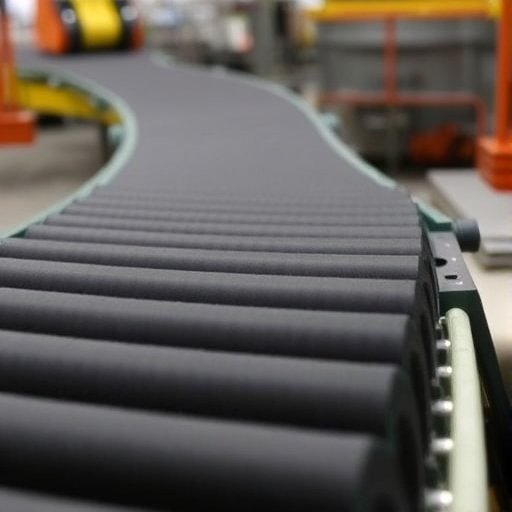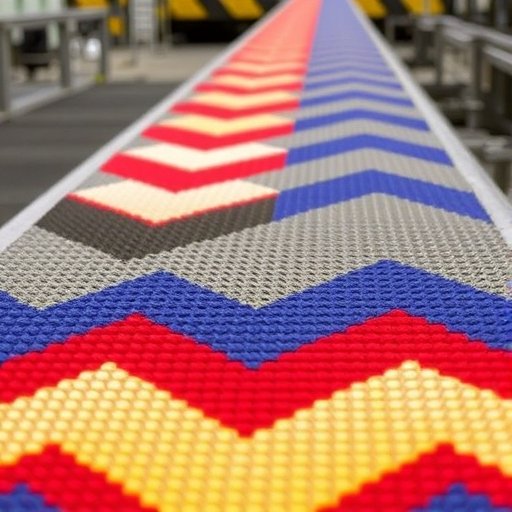Table of Contents
- Introduction
- Factors Affecting Conveyor Belt Costs
- 2.1. Material Type
- 2.2. Conveyor Length and Width
- 2.3. Customization and Features
- 2.4. Load Capacity and Speed
- Types of Conveyor Systems
- 3.1. Flat Belt Conveyors
- 3.2. Modular Pallet Conveyors
- 3.3. Roller Conveyors
- 3.4. Chain Conveyors
- 3.5. Toothed Belt Conveyors
- Conveyor Belt Prices in 2025
- 4.1. Basic Conveyor Systems
- 4.2. Custom Conveyor Solutions
- 4.3. Additional Costs (Installation, Maintenance, and More)
- Benefits of Conveyor Belt Systems
- Choosing the Right Conveyor System for Your Business
- Common FAQs about Conveyor Belt Cost
- Conclusion
Introduction
Conveyor systems are vital components in various industries such as manufacturing, logistics, and material handling. These systems help businesses streamline operations, reduce labor costs, and increase efficiency. If you’re considering investing in a conveyor system, one of the most important factors to consider is the cost.
In this article, we’ll explore the cost of conveyor belt systems, the factors that influence the price, the types of conveyors available, and what you should expect in 2025. By the end of this guide, you’ll have a clearer idea of the costs involved in setting up a conveyor system for your business needs.

Factors Affecting Conveyor Belt Costs
When planning for a conveyor system, several factors will affect the total cost of the installation. The price of a conveyor system is not a one-size-fits-all situation and can vary significantly depending on the features and specific requirements of your operation. Below, we’ll take a deeper look at these factors.
2.1. Material Type
The material used for the conveyor belt significantly impacts its cost. Different materials offer unique benefits and are suited for different applications. Common materials used for conveyor belts include:
- PVC (Polyvinyl Chloride): Affordable and commonly used for light-duty applications. It’s flexible and resistant to wear.
- Rubber: More durable and suitable for heavy-duty applications but can be more expensive.
- Steel: Often used for extreme environments that require strength and durability, such as for heavy materials or high temperatures.
The choice of material will affect the overall price, with premium materials generally leading to higher costs.
2.2. Conveyor Length and Width
The length and width of your conveyor system will have a direct impact on the cost. Longer conveyors with greater width tend to be more expensive due to the additional materials, design complexity, and installation time involved.
- Short Conveyors (Under 10 meters): These are typically less expensive, starting at around $1,000 to $5,000 for a simple system.
- Longer Conveyors (Over 10 meters): These systems can cost significantly more, ranging from $5,000 to $30,000 or more depending on specifications.
2.3. Customization and Features
Customization adds a layer of complexity and cost to conveyor systems. If you need specific features such as automated controls, integrated sensors, or custom-built frames, expect a higher price. Some of the most common custom features include:
- Speed Variability: Adjustable speed control for greater flexibility.
- Inclined/Declined Design: Conveyors that can be sloped to move products to different levels.
- Automation: Conveyors that are integrated with other systems to fully automate material handling.
Customized solutions can range from $10,000 to $100,000 depending on the complexity of the system.
2.4. Load Capacity and Speed
The load capacity and speed of the conveyor system also play a role in the cost. Conveyors designed for heavy loads or those that need to operate at faster speeds will require more robust construction and more expensive materials.
- Low Capacity (Under 100 kg): These systems are relatively inexpensive, starting at around $500 to $2,000.
- Heavy-Duty Conveyors (Over 100 kg): These systems are designed to handle larger loads and typically cost between $10,000 to $50,000 depending on the specifics.
Types of Conveyor Systems
When selecting a conveyor system, it’s important to consider the type that best suits your needs. There are various types of conveyors, each designed for different purposes. Below, we’ll discuss the most common types.
3.1. Flat Belt Conveyors

Flat belt conveyors are one of the most widely used types of conveyor systems. These systems are simple, cost-effective, and versatile, often used for handling a wide range of materials.
- Price: Generally, flat belt conveyors start at around $1,000 for basic systems and can go up to $10,000 or more for customized configurations.
3.2. Modular Pallet Conveyors

Modular pallet conveyors are used to move large, heavy, and often irregular-shaped products. These conveyors are designed for maximum flexibility and can be customized to fit various layouts and handling requirements.
- Price: Prices for modular pallet conveyors vary widely, starting from around $5,000 to $50,000 depending on customization, length, and features.
3.3. Roller Conveyors
Roller conveyors are often used in packaging, assembly, and distribution centers. They are ideal for transporting packages or products that can roll easily. These systems are durable and can be used in both light and heavy-duty environments.
- Price: Roller conveyors range from $2,000 to $20,000 depending on their size and specifications.
3.4. Chain Conveyors
Chain conveyors use chains instead of belts or rollers to transport heavy products. They are commonly used in the automotive and manufacturing industries where durable, heavy-duty systems are required.
- Price: These systems are usually more expensive, with prices ranging from $5,000 to $50,000.
3.5. Toothed Belt Conveyors
Toothed belt conveyors are suitable for applications requiring precise and reliable movement of products, particularly in high-speed environments. The toothed belts ensure products stay in place and move accurately.
- Price: Toothed belt conveyors typically range from $2,000 to $15,000 depending on specifications.
Conveyor Belt Prices in 2025
In 2025, the cost of conveyor belt systems will still vary depending on the type and customization level. Based on current trends, here’s an estimated breakdown:
4.1. Basic Conveyor Systems
Basic conveyor systems, such as small flat belt conveyors or simple roller conveyors, typically cost:
- Small Systems: $500 to $5,000
- Medium Systems: $5,000 to $15,000
- Large Systems: $15,000 to $30,000
These systems are often used in smaller operations or for lightweight materials.
4.2. Custom Conveyor Solutions
For businesses requiring specialized conveyors, such as modular pallet conveyors or high-load chain conveyors, expect to pay:
- Basic Customization: $10,000 to $30,000
- Advanced Customization: $30,000 to $100,000
The cost will vary depending on the complexity of the system, the materials involved, and the length of the conveyor.
4.3. Additional Costs (Installation, Maintenance, and More)
In addition to the base price of the conveyor system, you’ll need to consider installation, maintenance, and other associated costs:
- Installation: $500 to $5,000 (depending on the complexity of the system).
- Maintenance: $500 to $3,000 annually, depending on the system’s usage and upkeep.
- Upgrades: Adding automation, speed control, or sensors could add anywhere from $1,000 to $10,000.
Benefits of Conveyor Belt Systems
Investing in a conveyor belt system can offer numerous benefits for businesses, including:
- Improved Efficiency: Conveyor systems help move goods quickly, reducing downtime and increasing throughput.
- Reduced Labor Costs: With automation, businesses can reduce manual labor and improve employee safety.
- Enhanced Safety: Modern conveyors are designed with safety features that minimize the risk of accidents.
- Customizability: Conveyors can be customized to meet specific business needs, making them adaptable for a wide range of industries.
Choosing the Right Conveyor System for Your Business
When selecting a conveyor system, consider the following:
- Product Size and Weight: Choose a system that can handle your products effectively.
- Production Volume: If your business has high production volumes, you may need a more robust and faster system.
- Customization: Determine if you need special features like automation, inclined designs, or specific material handling capabilities.
- Budget: Understand the total cost, including installation, maintenance, and customization, before making a decision.
Common FAQs about Conveyor Belt Cost
1. What is the average cost of a conveyor system?
The cost can range from $500 to $100,000 depending on the type, customization, and features of the conveyor system.
2. Are there any ongoing costs for a conveyor system?
Yes, maintenance, electricity usage, and occasional repairs are ongoing costs associated with running a conveyor system.
3. How long do conveyor systems last?
The lifespan of a conveyor
system typically ranges from 5 to 20 years depending on the type, usage, and maintenance.
Conclusion
The cost of a conveyor belt system can vary significantly depending on the type, customization, and application. As businesses look to increase efficiency, reduce labor costs, and improve safety, conveyor systems remain a valuable investment. Whether you’re looking for a basic flat belt conveyor or a customized modular pallet system, understanding the factors that affect the price will help you make an informed decision.
If you’re considering purchasing a conveyor system, companies like Vitrans offer a range of modular pallet conveyors and other systems to suit your needs. With years of experience in providing high-quality conveyor solutions, Vitrans can help you choose the best option for your business.




